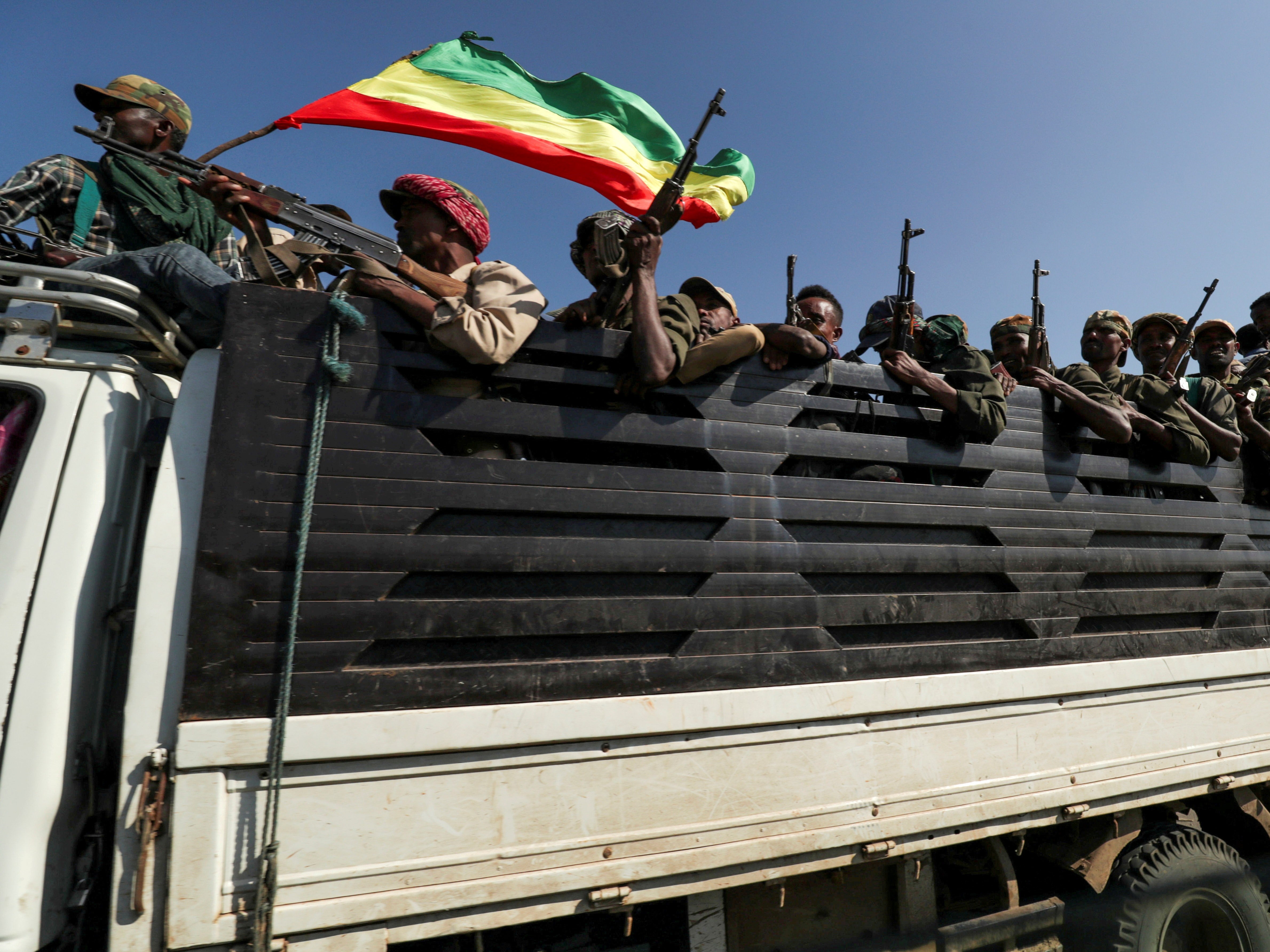Ethiopia Tigray crisis: Explosions rock major cities amid growing fears of wider civil war
Rockets fired at airports in Bahir Dar and Gonda as well as neighbouring Eritrea’s capital Asmara

Your support helps us to tell the story
From reproductive rights to climate change to Big Tech, The Independent is on the ground when the story is developing. Whether it's investigating the financials of Elon Musk's pro-Trump PAC or producing our latest documentary, 'The A Word', which shines a light on the American women fighting for reproductive rights, we know how important it is to parse out the facts from the messaging.
At such a critical moment in US history, we need reporters on the ground. Your donation allows us to keep sending journalists to speak to both sides of the story.
The Independent is trusted by Americans across the entire political spectrum. And unlike many other quality news outlets, we choose not to lock Americans out of our reporting and analysis with paywalls. We believe quality journalism should be available to everyone, paid for by those who can afford it.
Your support makes all the difference.A string of explosions have rocked cities across Ethiopia and its neighbouring state of Eritrea amid concerns the nation may slide into a civil war that spills across an international border.
Rockets were fired at airports in Bahir Dar and Gonda late on Friday from the restive northern state of Tigray following mounting tensions between the government in Addis Ababa and the Tigray People's Liberation Front (TPLF) – which runs the regional state.
And three missiles appeared to be aimed at the airport in Eritrea’s capital Asmara after the TPLF warned it may attack. Regional leaders have accused Ethiopia’s neighbour of attacking Tigray at the behest of Addis Ababa.
One of the world’s most reclusive nations, Eritrea has not confirmed the impact of the blast, including any details on casualties related to the apparent strike.
Federal troops have spent the last 10 days fighting in Tigray against well-armed local forces after disputes between the central government and the splintering regional authority spilled into armed conflict earlier this month.
The clashes have been so violent that more than 14,500 civilians living in Tigray have already fled into neighbouring Sudan, while Amnesty International has reported mass killing of civilians in the town of Mai Kadra.
But the new rocket attacks have raised fears both within the United Nations and the African Union that the fighting could spread to other parts of what is the continent’s second-most populous country and destabilise the whole Horn of Africa.
In a statement given on regional TV on Saturday morning, the TPLF said that strikes like those against the two airports would continue “unless the attacks against us stop”.
The regional state’s acting president, Debretsion Gebremichael, added later that the sites were reasonable targets. “Any airport used to attack Tigray will be a legitimate target, not cities of Amhara,” he told Reuters in a text message.
Tensions initially erupted in Tigray on 4 November after Ethiopia’s prime minister, Abiy Ahmed, ordered operations against the TPLF in response to attacks on a military camp where federal troops were training – something the TPLF denies.
That came against a backdrop of mounting unease among state leaders after Mr Ahmed – who won the Nobel Peace Prize in 2019 for bringing an end to his country’s 20-year conflict with Eritrea – pushed through major government reforms that the TPLF felt sidelined by.
Among these was the dissolution of the country’s ruling coalition, made up of several ethnically based regional parties, and merger of them into a single national organisation called the Prosperity Party.
The TPLF refused to join the alliance, claiming it was as an attempt to undermine the regional, federal autonomy explicitly promised in the country’s constitution.
Tensions peaked further in August 2020 when Mr Ahmed cancelled elections indefinitely because of Covid-19.
In an act of defiance, Tigrayan leaders recalled their representatives from the capital and held their own ballot – described as illegal by the federal government.
Ethiopia only came out of civil war in 1991, following 17 years of fighting.

Join our commenting forum
Join thought-provoking conversations, follow other Independent readers and see their replies
0Comments